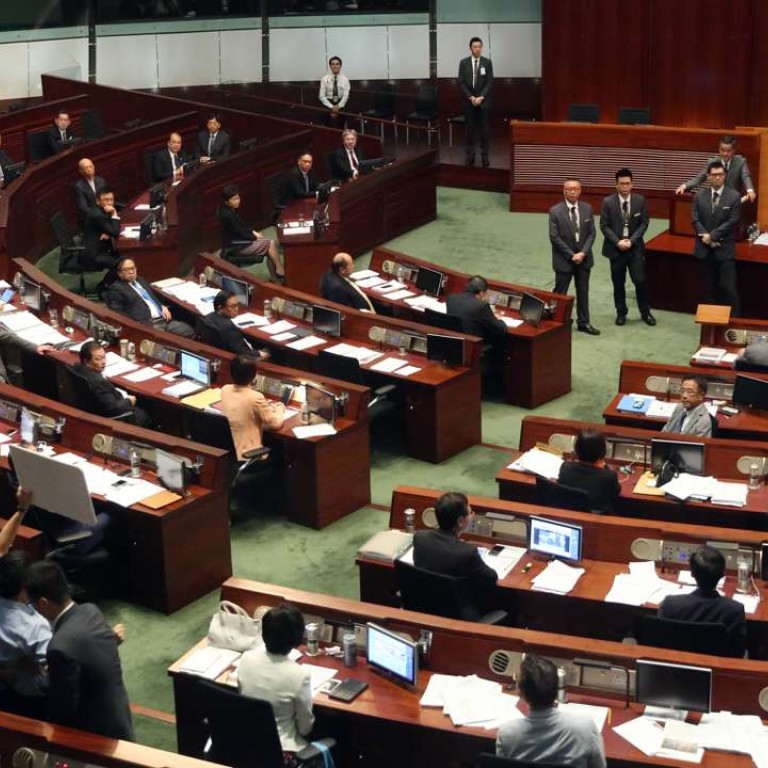
Leung on one hand, localism on the other: both pan-democrat and pro-Beijing candidates face headaches in Hong Kong’s Legco elections
Pan-democrats have been taken by surprise with a new declaration on secession, while pro-establishment hopefuls are struggling with their views on the chief executive seeking a second term
As politicians started throwing their hats in the ring over the weekend for the Legislative Council polls in September, both the pan-democratic and pro-establishment camps were grappling with taxing questions.
Pan-democrats have been taken by surprise with the government’s last-minute decision to require candidates to sign a new declaration pledging allegiance to the Basic Law, which will effectively force all to disavow calls for Hong Kong to secede from China.
If they sign it, they will run the risk of provoking ire among voters who have been attracted by localist and pro-independence candidates. If they don’t, their candidacy hangs in the balance.
For pro-Beijing candidates, they are faced with an equally vexing question: whether to back Chief Executive Leung Chun-ying if he seeks re-election as his popularity nosedives and Beijing sends no definite signals on his future.
Such a complex election will be staged only half a year after Hong Kong saw its most violent protest in half a century in the Mong Kok riot, which has been largely blamed on radical localists. The incident has fired up pro-independence candidates ahead of their full election debut on September 4.
Chan Ho-tin, chairman of the Hong Kong National Party, will register his candidacy today. His spokesman said Chan would not sign the declaration as required by the Electoral Affairs Commission.
Mainstream pan-democrats have also vowed to ignore the rule, but their positions could change after a meeting with the commission’s chairman tomorrow.
“If I cannot be convinced there is a valid legal basis for it, I will not sign the form,” said Dr Edward Yiu Chung-yim, who will contest the functional constituency for the architectural, surveying, planning and landscape sector.
The new declaration requires candidates to agree that Hong Kong “is an inalienable part” of the People’s Republic. However, when pressed on the issue on Saturday, the commission said anyone not signing it “would not necessarily be invalidated” and that the declaration was not part of the candidate nomination form.
As such, argued University of Hong Kong legal scholar Benny Tai Yiu-ting, an expert in local politics, “there is no legal obligation for a candidate to sign”.
“It is clear there is no legal basis ... to decide a nomination is invalid if a candidate refuses to sign. If one does sign, he or she will be bounded, limiting his or her own freedom.”
Pro-establishment lawmakers face no difficulty in signing the new form, but they are concerned about inquiries into their views on the chief executive.
Starry Lee Wai-king, chairwoman of the Democratic Alliance for the Betterment and Progress of Hong Kong, the city’s biggest pro-Beijing party, said last week it would “conduct a detailed and objective assessment” of any chief executive candidates. Asked if she meant the DAB could support Leung’s re-election, she replied: “No possibility can be excluded.”
Confronted with the same question, the Federation of Trade Unions – which fully supported Leung in 2012 – was similarly evasive.
“It depends on who runs,” honorary chairman Cheng Yiu-tong said.


